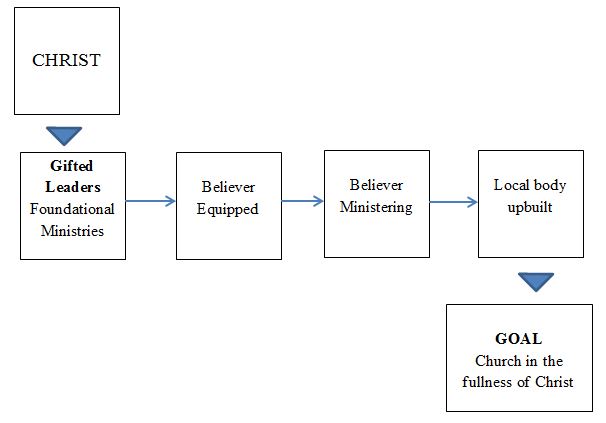(Taken from my book, “Healing for the Church,” available for order here.)
Categorizing the Gifts
Spiritual gifts are of three major types. The first five, Prophecy, Teaching, Exhortation, Wisdom and Knowledge involve a direct use of Scripture. Gifts of Faith, Discernment, Mercy, Administration, Service and Giving might be called general service gifts. Healings might also be included here, depending on how one defines the gift.
Finally, there are the sign gifts. Some of today’s tensions regarding these can be alleviated if the biblical data are carefully inspected. Helpful principles in making such determinations are given in Chapter One. Remember the relation between the five books of history and the twenty-two books of commentary. The sign gifts entered very largely into the launching of the church. Now that Christianity has an established footing in the world and the Scripture is available in written form, we should expect the church to move along in orbit without requiring the same launching equipment. This explains why, as the church developed, the Epistles gave full instruction for the ongoing use of various gifts having to do with the Scripture and general service but did not emphasize the sign gifts.
God’s intentions regarding the gifts are revealed to us in the Scriptures. The first five books of the New Testament give the history and outline the events. Miraculous signs were a part of that history. Tongues were a part of the events in the last book of history (i.e., Acts). These narrative books are then followed by twenty-two books of instructions to the churches. In one section of one of the Epistles (I Corinthians), there is a mention of the problems and concerns of tongues-speaking. Nowhere else is it mentioned, and the church is not given instructions on seeking signs as a part of ongoing church life. For example, when Paul wrote his very complete instructions to the Roman believers, he covered all the essentials of salvation and church life, giving an entire chapter to gifts of the Spirit. Sign gifts are conspicuously absent from Romans 12.
But it should be remembered that whatever a church requires in the way of gifts will be provided by the Head. In the early days of Christianity as the vast worldwide heathendom was being first challenged, God authenticated his tiny minority with signs and wonders. Today Scriptures are fully written and in hand, and the church has a significant place in our world. However, when missionary advances penetrate a deprived, illiterate, and primitive situation that threatens to extinguish the light, certain signs might again occur. The main thing is that God must be sovereign; he will undoubtedly work within the confines of scriptural teaching and the wholesome balance we have discussed among the two divisions of New Testament books.
Scripture also gives warning passages concerning signs and wonders of an evil, counterfeit type that multiply during the final phases of history (e.g., Matt. 24:24; 2 Thess. 2:9-10). Notice in the second reference that the reason for people’s calamitous fall is an interest in the signs and wonders rather than precious truth.
Growing a Gifted Assembly
God’s pattern for developing a congregation that thrives with the life stimulated and encouraged by operation of the varied spiritual gifts is presented rather clearly in Ephesians 4: 11-13. It can be outlined simply as in figure 6.
Figure 6: Diagram of Ephesians 4:11-13
The large steps for growing a gifted assembly might be stated as follows:
- Structuring along biblical lines involving all the members and their gifts.
- Giving instructions regarding the gifts — both in regular preaching and teaching and in special training sessions.
- Offering practical assistance to discover and use gifts. Here are the directions which I have used in helping believers become more settled as to what their spiritual capabilities really are:
a. Study and meditate on pertinent Scripture.
b. Pray, asking God for understanding, divine enablement, and the filling of the Holy Spirit.
c. Serve in various capacities, exposing yourself to God and his fields of ministry.
d. Seek the counsel and confirmation of fellow believers.
Now allow me to make a few concluding observations. First, each member should with confident anticipation discover his or her own gifts and then move to assist others in the same process. Remember also that spiritual gifts may appear singly, but usually an individual will possess his or her own particular pattern of abilities.
Next, the congregation itself must be edified to the place where they fully accept their own leaders and ministering ones. As we have shown, all will have gifts to serve, and some will in addition hold office. Let the some remember the all, and let the all respect the some.
The truly maturing, edified church will then be receptive to its own leadership and ministries and will continue diligently developing both. As Romans 1:11-12 suggests, the benefit of gifted ministry is mutual, that is, both giving and receiving.
Attitudes and dispositions seen during the exercises of spiritual gifts are very important. Reading Romans 12, I Corinthians 12-14, and other related texts shows how ruinous carnality is to the proper exercise of the gifts. Let there be no antagonism, jealousy, inferiority, pride, or rivalries.
Finally, consider what potential (often unrealized) is suggested by statements like the following: “Now to each one the manifestation of the Spirit is given for the common good …. All these are the work of one and the same Spirit, and he gives them to each one, just as he determines” (1 Cor. 12:7, 11). However, we do not see God forcing this promised fullness into a church’s life. Instead, divine sovereignty awaits human concurrence. This means that God requires believers to take some such steps as we have proposed toward his supply of grace, and then the gifts will appear and develop.
